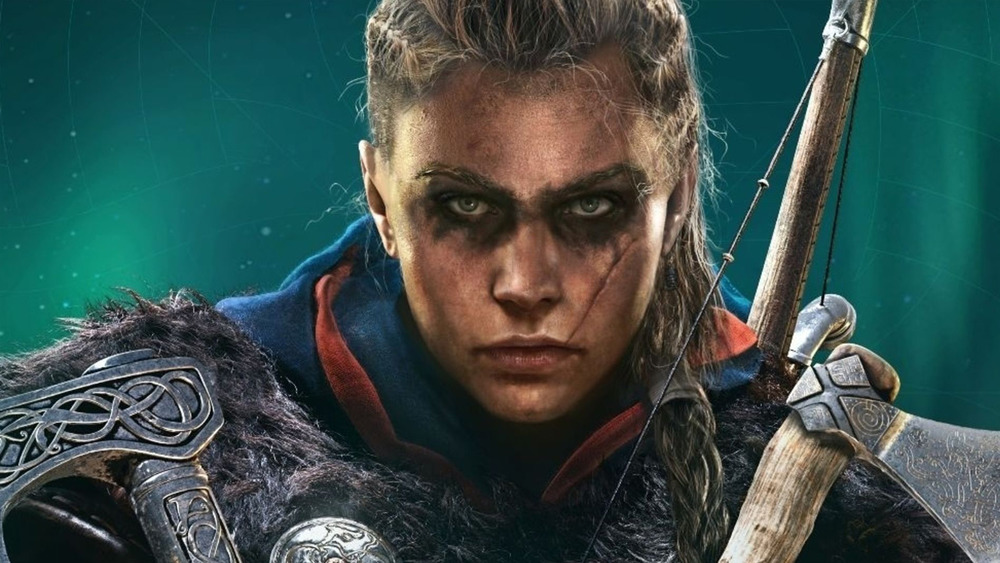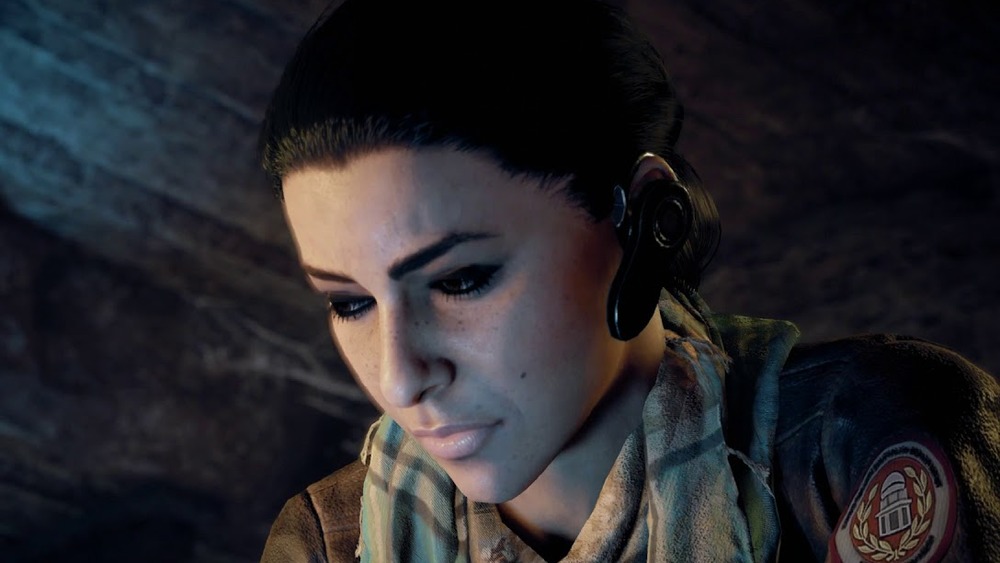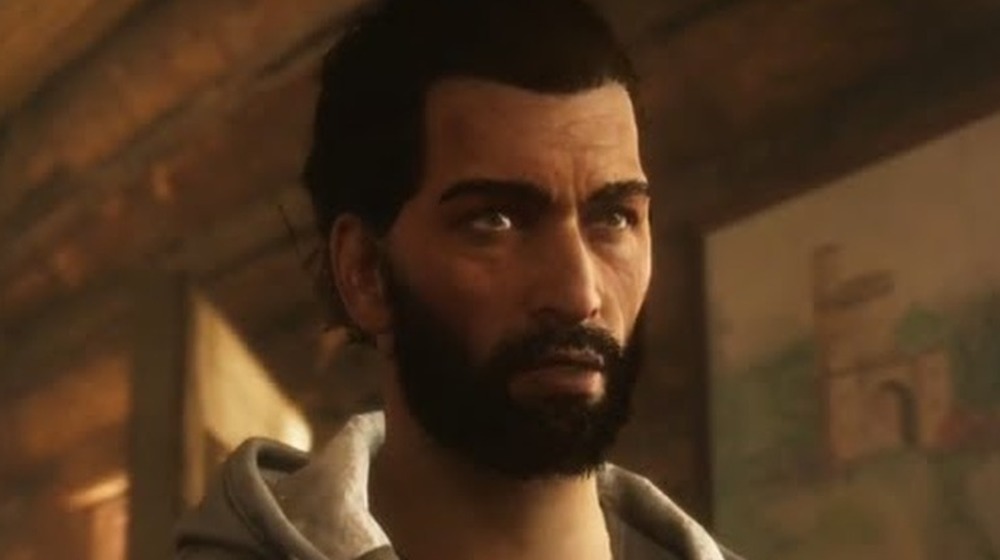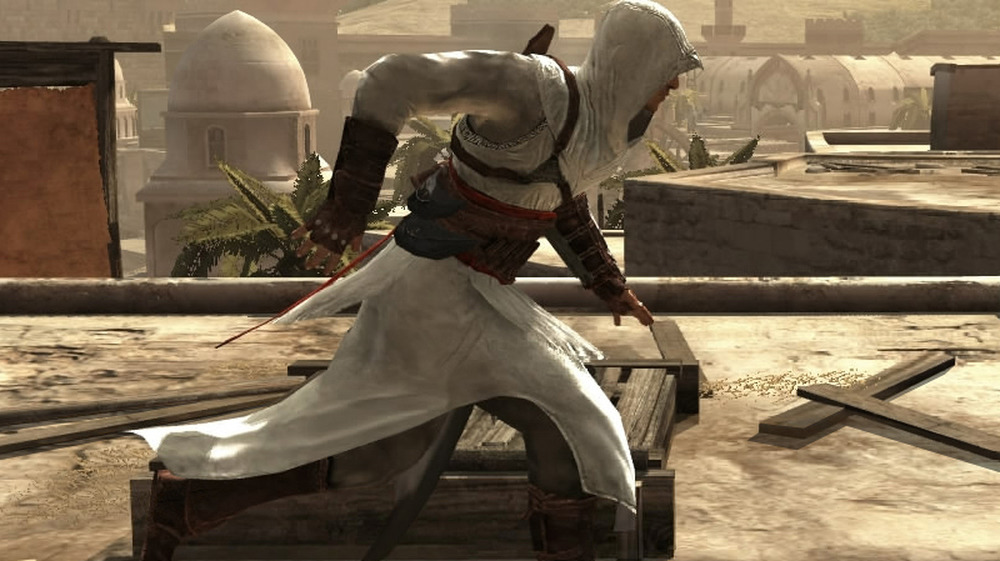The Biggest Unanswered Questions In Assassin's Creed: Valhalla
While it's not quite the biggest game in the Assassin's Creed series, Valhalla is still a hefty experience that will take at least 60 hours to complete. Even so, there's still plenty about the game to keep pondering about. After all, Valhalla is the 12th full game in a series that started in 2007. Love it or hate it, the series's never-ending meta-story about the history-spanning conflict between the Assassins and Templars is still ongoing.
At the end of the previous game, Assassin's Creed: Odyssey, the world was on the verge of its third possible apocalyptic event. Modern-day protagonist Layla Hassan, now a full-fledged Assassin, had just secured the Staff of Hermes Trismegistus, a powerful artifact from the ancient Isu civilization that grants immortality. Her next task was to investigate the mysterious strengthening of Earth's magnetic fields in an attempt to stave off armageddon. To do that, she headed to 9th century Viking Britain, the setting for Valhalla.
60 hours later, everything's changed again, and there are still plenty of questions the game left unanswered. Here's what fans are left wondering as they wait for the next sequel.
Beware of spoilers ahead of Assassin's Creed: Valhalla.
Who will be the hero of the next game?
At the end of Valhalla, Layla voluntarily uploads her consciousness into Yggdrasil, an Isu device that traps her inside "The Gray," an alternate plane of reality that prolongs life. There, she joins former protagonist Desmond Miles, who has now become a being calling himself "The Reader." While she's not technically dead, Desmond tells Layla that she'll never escape.
Problem is, during the events of Odyssey, the ghost of an Isu leader named Aletheia tells Layla that she is the one prophesied to become the Heir of Memories and save the world by bringing balance to the opposing forces of Order and Chaos (represented by the Templars and Assassins, respectively).
While Layla and Desmond say they will be looking for a way to get the magnetic field under control, Layla physically won't be able to do that herself. Presumably there will be a new modern-day protagonist stepping in to take on that role, with both Layla and Desmond possibly acting in advisory roles. But who will that new protagonist be?
One possible candidate is Basim. But his overall storyline in Valhalla makes his hero potential questionable.
What's Going On With Basim?
After Layla enters the Isu device, the game shifts over to Basim as the modern-day playable character. Basim was a supporting character in the Viking storyline and a member of the Hidden Ones, the Assassin precursor group. Basim is also revealed to be the reincarnation of Loki, the Norse god of chaos. As Basim, he traveled to Norway under the pretext of helping the viking warrior Eivor, the reincarnation of the Norse god Odin and Valhalla's main character. But Basim/Loki's real motivation is to avenge Odin's killing of his son, Fenrir.
But Basim/Loki has another motivation. Basim/Loki's lover was Aletheia, an Atlantian god who died and whose spirit became trapped inside the Staff of Hermes Trismegistus, and who also acted as a mentor to Odyssey's protagonist, Kassandra.
When Basim/Loki finally leaves the Gray and enters the modern world, he reveals that he orchestrated the entire scenario so he could possess the Staff, free himself, track down their children, and possibly also reincarnate Alethia.
That may throw cold water on the idea that Basim will be the one to bring balance to the world and stave off the apocalypse. So far, his motivations appear to be more personal than political.
Will The Assassins Vs. Templars Conflict Ever Be Resolved?
The first game in the series, Assassin's Creed, established the eternal Assassins vs. Templars conflict that has fueled most of the subsequent games. The first game also clearly established the Templars as the "villains" of the series and the Assassins as the "heroes." On the surface, the Templars believe in maintaining order in society through any means necessary, while the Assassins advocate for personal freedom.
But since then, the games have moved away from this black-and-white "good vs. evil" dichotomy to something much more gray. The series has included plenty of "good," Templar characters like Shay Cormac and Haytham Kenway, who have proven the organization isn't inherently malevolent. It's also included plenty of Assassin characters who have done terrible things.
Regardless of what they claim to represent, the Assassins have also proven to be just as rigid in their ideology as the Templars are. So they're really not all that different, in the end.
Layla's prophecy says she'll save the world by balancing the opposing forces of Order and Chaos, not by defeating either side. While it might be anti-climactic to end the game's overarching conflict without a clear winner, it would also make the most sense.




